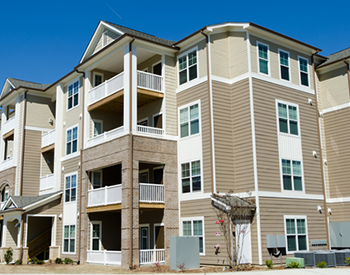Most government assistance programs are for very low- and low-income households. Your income could disqualify you from receiving funds. However, you can still find cheap housing options and follow tips for cutting down living expenses.
Location, amenities, and size are the biggest factors influencing rental prices. Units closer to downtown or places of commerce are typically more expensive than those in rural areas. If you don’t mind a longer commute, you could save big bucks by choosing a rental outside of city limits.
If you are a homebuyer, consider the cost of your preferred location. In addition to affecting listing price, some places are more expensive than others regarding property taxes, homeowners’ dues, and other expenses.
With more remote work available, many workers choose to live in more affordable areas. When analyzing cost of living, five of the most affordable states include the following:
- Mississippi
- Kansas
- Alabama
- Oklahoma
- Georgia
Some of the most expensive areas to live in include Hawaii, the District of Columbia, California, New York, and Massachusetts.
If switching states or counties is not an option, you can look for other ways to cut your rental costs. One or more of the following methods could reduce your monthly expenses:
- Get a roommate – Two-bedroom rentals are usually just a little more than a one-bedroom. Splitting the rent and utilities with another person could save you hundreds each month.
- Downgrade amenities – While an in-unit washer and dryer or onsite pool are fun amenities, they can drive up rent prices. Rentals without these features are typically much cheaper.
- Exchange services for rent reductions – Some owners may give you a discount for helping maintain the property. Ask the landlord about cheaper rent for doing lawn care, making improvements, or acting as property manager.
- Pay cash – Digital payments are convenient for tenants, but landlords may pay fees for the service. Ask your landlord about discounts for paying cash.
- Get a longer lease – Tenant turnover is not profitable for a landlord, such as vacancies and cleaning. A property manager may give you a cheaper rate for 18- to 24-month leases.
If you are in the market to buy a home, you can find single-family homes below the market price. HUD and other government departments sell foreclosed and other government-owned homes. For example, the Internal Revenue Service auctions property seized due to unpaid taxes.
The government also backs home loans, so borrowers are less risky to lenders. A lower risk often means lenders can offer more favorable rates, like lower interest rates. A Federal Housing Administration (FHA) loan has lower down payment requirements and closing costs, and borrowers with less-than-perfect credit are likely to qualify.
By Admin –




